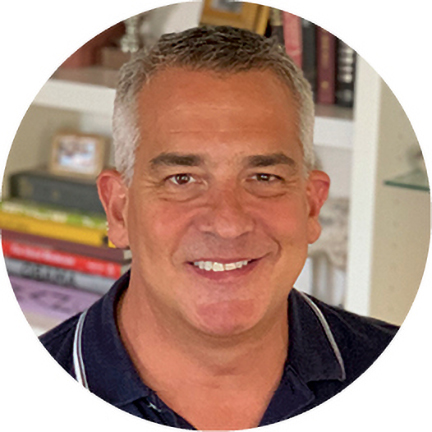
A Lesson in Inclusion
In early May our family experienced an unimaginable tragedy when my husband Greg’s mother Dolly passed away unexpectedly from a non-COVID-19 related illness. On Valentine’s Day, he had lost his father under similar circumstances. As you might expect, losing both parents—who had been married for 63 years—in the span of three months, is devastating.
Dolly was an incredible mother to four amazing children and her commitment to the strength of family will be a lasting legacy. Being a devout Catholic, Dolly’s faith also played a central role in her life. Which is why Christmas was the highlight of Dolly’s year because it celebrated family and faith, two passions she held most dear. This was something I learned soon after Greg and I began dating on January 28th, 1989.
Our relationship quickly grew serious and from that day forward we never spent a night apart. When we met, Greg was in the process of purchasing a one-bedroom co-op for which his parents helped with the down payment. Up to this point Greg had not come out to his parents, so he felt it was important to do so before we moved in together. So, in August of that year, Greg flew to Chicago and told his parents he was gay, something his brother Dave had already done a few months earlier, when he too revealed his sexual orientation.
Hoping to soften the blow, Greg shared that I had graduated from the Jesuit institution Georgetown University. Dolly excitedly asked if I was Catholic, perhaps in an effort to find a way to accept and love Greg, while still honoring her conviction to God. Upon learning I was Jewish instead, Dolly appeared deflated. What she would soon find out is that family and traditions were as important to me as they were to her because of my Jewish upbringing.
Despite the moral dilemma Dolly faced by having two gay sons, her devotion to Greg and Dave never wavered. Like any good mother, Dolly only wanted her children to be happy. She demonstrated this when she invited me to join Greg at Christmas the next year, a sacred annual family tradition.
From the day we first met in person, Dolly always made me feel welcome. She did the same for the special people in Dave’s life. Having said that, there were instances when Dolly’s comments regarding LGBTQ issues left me wondering if she were truly able to love her gay sons unconditionally. In the mid-90s I was actively engaged in advocacy with the Human Rights Campaign both professionally and personally, helping to secure workplace protections for LGBTQ people.
I remember having a conversation with Dolly about the importance of passing the Employment Nondiscrimination Act, explaining that it was currently perfectly legal in many states to fire a person just for being LGBTQ. Dolly responded by saying this could not possibly be true. The more I tried to present her with facts, she continued to push back.
On the flip side, my own mother was an outspoken supporter of me as a gay man. She proudly joined me at LGBTQ events and challenged others around her when they voiced anti-gay positions.
However, this did not stand in the way of Dolly’s and my ability to develop a bond. I was especially drawn to her cooking prowess, a by-product of her degree in home economics. While I am grateful to my mother for many things, learning how to cook well was not one of them. Dolly taught me many tricks of the trade, like how to remove the fat from the inside of a turkey and the art of making turkey soup from Thanksgiving leftovers.
Yet, the juxtaposition between how our mothers expressed their sentiments regarding gay issues made me question if Dolly considered my relationship with Greg the same as those of his siblings who were straight and married. As the old saying goes, “If you judge a book by its cover, you might miss out on an amazing story.”
About a year ago, Dolly excitedly told Greg that a lesbian couple was moving in next door. At that time, Aleke and her wife were the only same-sex couple in their 65+ retirement community. The day after Dolly passed away Aleke came by to express her condolences. She shared that Dolly immediately introduced herself and welcomed them with open arms. In fact, they became close friends. This brought a huge smile to my face.
All this time I had assumed that Dolly was not fully comfortable with gay people, because she never referred to me as Greg’s husband. To the contrary, Dolly’s outreach was a perfect example of what it means to be intentionally inclusive. It also taught me an important lesson: that actions speak louder than words. Family was everything to Dolly and that included me. I am a better person because Dolly was in my life.
Wesley Combs, a CAMP Rehoboth Board member, is a diversity and inclusion expert and a passionate social justice advocate. He is the founding principal of Combs Advisory Services where he works with clients who share his values of enabling equity, equality, and opportunity in the workplace and the community.
